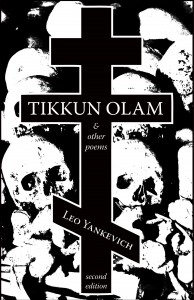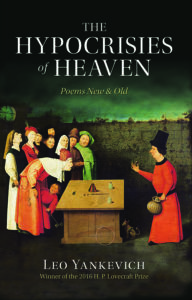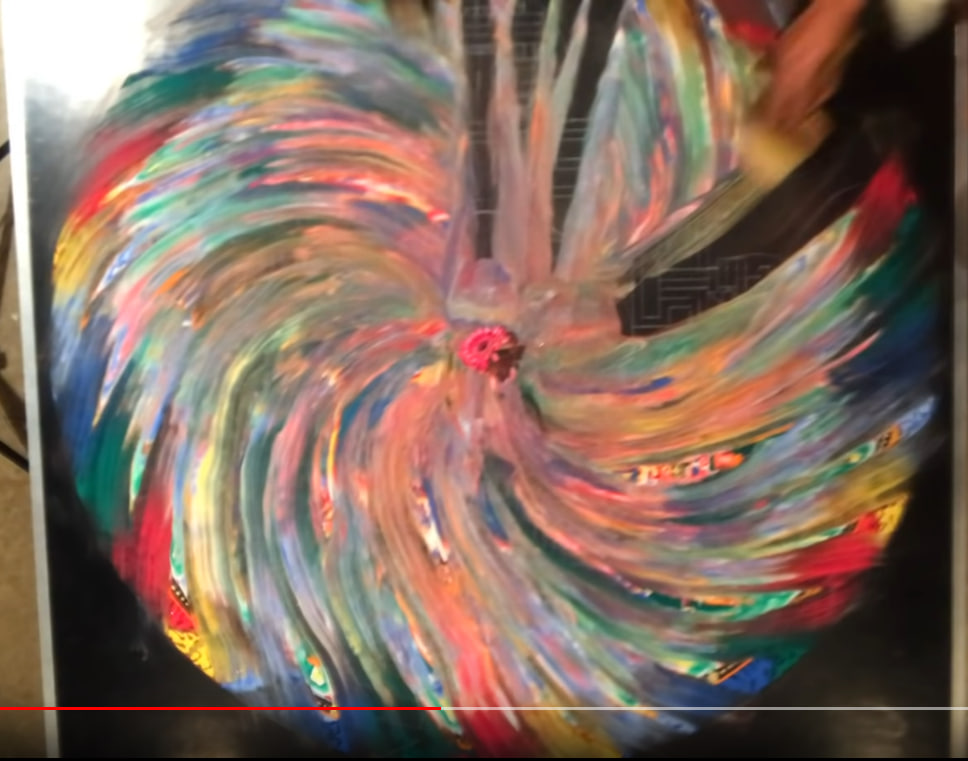The Counter-Currents Donors’ Haiku Death Poem Contest
2,424 words
I’m not a great connoisseur of culture or the arts. I drew as a child, won a poetry contest once, and before reading “grabbed me” at the ripe age of 26, I was as distant from them as could be. Little did I know it would eventually take hold of me. This was because our current world is bleak — and not in the Russian manner as depicted by Tolstoy and Dostoevsky. It is bleak because the stories being told today are artificial and adhere to a pruned zeitgeist being set by a small group of editors and publishers. But when I found the classics and the adventures of the old heroes, I was ecstatic over how believable and lifelike they were, whether I was reading a biography or fiction.
As rewarding as that experience has been and continues to be, I was even more pleasantly surprised when I decided on a whim to hold the haiku contest for donors in the Counter-Currents Insider Chat on Telegram. I fondly remember the poems that came with the research tree in Shogun 2 and which continued in Fall of the Samurai. I loved the expressive depth of these short and sweet reflections and explored them further in books such as Yoel Hoffmann’s Japanese Death Poems. The culmination of a life’s reflections on impermanence, these poems are short — like a spark flying out of a fire that briefly burns brightly before fading out.
If you’d like to become an insider, please join us and sign up for a paywall membership for exclusive events and contests! If you are already a member, you can e-mail Cyan Quinn with your Telegram handle.

You can buy Leo Yankevich’s poetry book, Tikkun Olam, here.
“Death poem” is perhaps an inaccurate translation. Jisei translates roughly as “farewell poem to life.” Not all jisei are haikus, yet all of them are in short verse because they seek to connect the reader to the poet before his life’s end. Their beauty comes from the moment in life when one crests the philosophical hill and realizes, “Now I finally see.”
What better place to search for a man’s mettle than during the “fall of the white man”? This is not only to draw on wisdom and inspiration, but also to give color to a bleak world. I hope the reader will join me in appreciating what beauty, art, and self-expression can give to our times, especially the fact that our unique voices and perspectives can still be heard. That is a flame worth kindling.
I hope to see your contributions in the comments section below as well, although you must first make peace with the fact that you cannot winning a prize.
Our contest followed the 5-7-5 syllable rule of haikus. There are tools available for those who are not comfortable with English.
The first to answer the call was our always faithful A.D., a military man:
If at my life’s end
My duty is duly done,
I don’t dread the dark.
At the great gold gates,
The kingdom of Christ is closed
To my unbowed head.
Visions of Valkyries
Vanish from my modern mind.
The old gods are dead.
No such things as souls.
Immortal life is a lie.
Men are born to die.
Yet the race lives on.
So long as our likeness lasts,
I live forever.
In these words, we immediately see an indifference to death. It is direct with clear lines, words, and meaning. It is not amorphous, as some of the traditionally Asiatic ones, and as so often happens with European poets who trying to being obscure for its own sake, as so much modern art. The poem shows that he has no regrets, and that whatever happens will occur as long as a duty is well fulfilled. I trust A.D. will consider carrying a small, folded jisei with him for when the time comes.
Next was donor Jan Hansen. He is naturally at home in the arts:
A Nation fertile
A vision once nocturnal
Now burns eternal
Courage and wisdom
Live eternal in the blood
Hear their voices now
The land before me
The crimson sky above me
The blood within me
Kinship strong and true
You in us and us in you
A chain unbroken
A virtuous man
A flourishing family
A healthy Nation
Jan clings to life and immortality — something that defies impermanence, or perhaps embraces it, as life is not about the individual, but the greater organism throughout time. His jisei lack darkness and focus purely on the positive and good times. They stand in stark contrast to AD’s words, which have a more pessimistic or stoic note to them.
It is through these contests that one sees and appreciates the palate of the common man and his unique sense of being. I believe that in Bronze Age times, Europeans would express themselves in contests such as these across various disciplines, including wrestling, animal herding, and poetry, offering proud displays of mastery or well-roundedness.
On the plane to one of our conferences, Jan felt inspired to write a handful more:
Roots in bloodlines deep,
Branches of kin, skyward reach,
Past and future meet
Seeds of virtue sown,
Shoots of strength and wisdom grown
Fruits of valor known
From the darkest night
I awakened from slumber
And began to fight
In a thunderclap
Ten thousand voices sound
We will not back down
In still water’s glass,
Reflections of the old world,
Gaze into the now.
Rhyme is now added to the mix. Jan definitely enjoys developing his craft and adding elements as he returns to the challenge. His hopeful optimism is now paired with mystic Germanic inspiration.
You will notice throughout that I will never explain or analyze the poems, because it is you, the reader, who must see and feel it. It’s not only what is said that is important, but what is heard by the observer as well.
Our own James Kirkpatrick now joins in. I had the pleasure of meeting him while touring Europe on a donor road trip one of our conferences. He is a professional in the arts and runs a poetry blog. Let us see what flows from his heart:
goose-down pillow notes
the dream, then is discarded
quill by poking quill
whose blood spurts blush the
coliseum floor, fainting,
gores the matador
pigeon, I have seen
your European cousins perched
in granite garlands
gelding’s diamond brow,
white in winter field, reflects
the garnet sunset
desperation seeds,
a dandelion shunts her
feathered dynasty
One can easily tell the difference between the beginner and the master, true to form; some features of a master’s poems are not immediately fathomable by the casual reader. It is the difference between merely throwing punches and watching a professional boxer: it immediately becomes apparent once one starts dabbling in the craft.
I began sweating profusely as I began this section, because now I will have to share my own abominations. It is my belief that this is also the reason why we didn’t get more submissions. What if one shares his poetry and it’s no good? Though it is my opinion that a true man doesn’t merely defy death; he defies embarrassment! So, without further ado:
The vast tide rises
To sweep away all that was
I explore the depths.
Insects swarm the fields
I set light to my labour
It will grow again.
I leave the warm hearth
facing great uncertainty
Reborn on the path
Fears have ruled my life
Now I am sure to perish
I’m truly living
Leaves fall from on high
Beautiful crimson colour
My blood beckons spring.
Life’s painful lessons
form the deepest foundation
to reach brightest end
I have tried to remain true to the jisei’s traditional core, which is a farewell to life and a philosophical grasping of life’s meaning intertwined with the sense of an ending. My colleague Cyan, for instance, was not aware of the sand mandalas that certain Buddhist monks create (see here and here). Such thinking tools open up whole new worlds of perspectives. Whereas we are familiar with the iconic European mindset of permanence, it is refreshing to sometimes experience impermanence. Isn’t a life truly lived when it is punctuated by a significant and proper death?
When you watch the videos you will see that the artwork that is created is also destroyed, but the astute among you will also see another, even more abstract artwork emerge: a storm of color that perhaps best describes our lives as we will see them when they are flashing by before our eyes at the moment of our end. Such thoughts seem far removed from our contemporary society, where many are focused on extending their lives no matter what, or in what condition they find themselves.
I believe that no good can come of such attachment to permanence — or perhaps to riding it out safely when little is left to lose.
Collin Cleary knows me as one of those European-style socialists — and he knows me well! Among friends there may be winners, but there shouldn’t be any losers — and therefore all of our valiant participants will receive a little something from yours truly at our next event.
But the honor of determining the winner belongs to Counter-Currents’ panel of writers and editors.
Greg Johnson
I read a lot of poetry, but when I was called upon to publish it, I realized that I don’t know how to be a poetry editor, how to choose poems for publication, or how to make suggestions for changes or improvements.

You can buy Leo Yankevich’s poetry volume The Hypocrisies of Heaven here.
All those poems I love had gone through that process, but I didn’t have a clue as to what that process is. Fortunately, I was saved by the great Leo Yankevich and the great Juleigh Howard-Hobson, who needed no editing and could guide me in choosing other poets. When Leo died a few years ago, I stopped publishing poetry at Counter-Currents. Thus, all I can say with confidence about these poems is that many of them speak to me, but A.D.’s poems speak to me most consistently.
James Kirkpatrick
AD’s submissions: Many would be resolute, resigned, and brave, but can’t; others seem to have no other choice but to be. A.D.’s poems encapsulate the latter; they are stark declarations of a martial love for duty, truth, and strength.
At the great gold gates,
The kingdom of Christ is closed
To my unbowed head.
People say those things. Then, at the end, they take last rites, just in case, and thereby play it safe. But the speaker of this poem — one can safely bet — would never.
Jan Hansen’s poems: To the speaker(s) of Jan’s poems, kinship is crucial; likewise, where it is, or would be, nurtured. One who thinks so calls that place his own, insisting it be kept inviolate: a home, that is, where he, his loved ones, and his loved-one ghosts, among their own, each find their place between the poles of Simple and Sublime.
The land before me
The crimson sky above me
The blood within me
“Land, sky, blood,” without apologia, simply be. Standing there: “before, above, within,” waiting to be seen (or not) by “me.”
My own submissions: I used to work for a strip mall, patching the roofs of aging buildings. On the roofs were abandoned air conditioning units; in them, the nests of pigeons; on those nests, the birds themselves.
Pigeon, I have seen
your European cousins perched
in granite garlands
They’d scatter, then return when the bustle of work moved far enough away that they felt safe.
In European towns, that same meek breed could claim the ledge of some cathedral. Yet, here were these, their American kin, same sunburst eyes and shining wings, squatting in scrap.
Samuel’s submissions: No one wants annihilation, only this:
Though jettisoned, to see his “labour . . . grow again,” to “reach [a] brightest end,” to be “reborn,” and through each stage to say, though “fears have ruled my life . . . I’m truly living.”
Leaves fall from on high
Beautiful crimson colour
My blood beckons spring.
The speaker of Samuels’s poem(s) perceives the gyral makeup of his world and how it will not let him circumvent it. So, he doesn’t try. Instead, devoid of fear — or seemingly, at least — he sets himself to do the needful thing: sacrifice. Whatever that may mean, that he might reach a brightest end, then be reborn, then see his labour grow again.
Cyan Quinn: The ancients believed courage to be paramount among all virtues, and that a fundamental condition of courage is to understand that the value of the species is greater than that of the individual. With this in mind, these two poems by A.D. were a close second and third:
No such things as souls.
Immortal life is a lie.
Men are born to die.
Yet the race lives on.
So long as our likeness lasts,
I live forever
This poem from Sam, however, directly reflects a fundamental truth of a life worth living –probably ironic for a death poem — and therefore wins my vote:
Fears have ruled my life
Now I am sure to perish
I’m truly living
Through most of human history, there have been conditions under which life was and is worth living. For example, many ancient cultures accepted suicide as an appropriate form of redemption if one was enslaved, terminally ill, or dishonored themselves or their family. In these circumstances, for man to be a man and not an animal, he should be free and transcend the individual as part of a family, people, or race (extended family). This is in stark contrast to modern bourgeois man: the base animal form of living in which the greatest concern is comfort.
Taking Sam’s poem by itself, the reader has to fill in his own context regarding the circumstances of death. But if I take the liberty of using A.D.’s poems as a context for Sam’s, the writer transcends the animal self that is primarily concerned with its own survival, the survival of the individual, and becomes a hero, warrior, or martyr for, as A.D. puts it, “our likeness.” In death, he finally earns life as a man.
Conclusion by Sam
Well, there you have it. I feel it is clear that A.D. will walk away with the champion’s haiku — and we can all learn from his poetic efforts! I am very appreciative of all the participants and reviewers who contributed both to the contest as well as this essay. Again, feel free to share your insights and submissions below in the comments. I look forward to reading them.
* * *
Counter-Currents has extended special privileges to those who donate at least $10/month or $120/year.
- Donors will have immediate access to all Counter-Currents posts. Everyone else will find that one post a day, five posts a week will be behind a “paywall” and will be available to the general public after 30 days. Naturally, we do not grant permission to other websites to repost paywall content before 30 days have passed.
- Paywall member comments will appear immediately instead of waiting in a moderation queue. (People who abuse this privilege will lose it.)
- Paywall members have the option of editing their comments.
- Paywall members get an Badge badge on their comments.
- Paywall members can “like” comments.
- Paywall members can “commission” a yearly article from Counter-Currents. Just send a question that you’d like to have discussed to [email protected]. (Obviously, the topics must be suitable to Counter-Currents and its broader project, as well as the interests and expertise of our writers.)
To get full access to all content behind the paywall, please visit our redesigned Paywall page.




